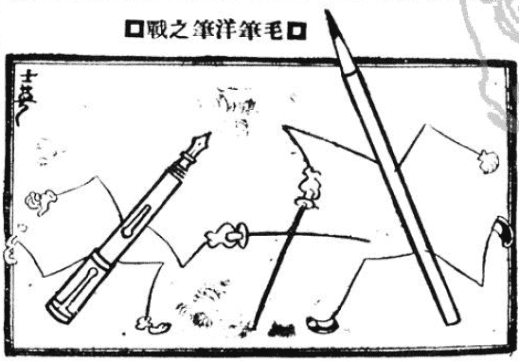
Manuscript and the Human in Modern China
November 15, 2023 · 4:30 pm—6:00 pm · 202 Jones Hall
Chloe Estep, Univesity of Pennsylvania

While the stylus, or handwriting tool, is typically left out of narratives of technologization, I am interested in the ways in which manuscript was expressive of modernity. Through an examination of representations of pens and brushes in print media and cinema from the Republican and Socialist eras, this talk will explore how the stylus served as a metonym for the changing status of the human in manuscript writing in the modern period. While earlier literary examples show that the brush and the human were understood to be commensurable, mutually resonant categories, examples from the modern period reveal increasing friction between the human and various forms of manuscript technology. Rapid technological and political changes in the twentieth century led to a reevaluation of the relationship between writer and stylus. This reevaluation began in the early twentieth century with attempts to integrate mechanized forms of inscription into a human-centered writing process, and resulted in anxiety over the gradual sidelining of the writing subject. Examples from Maoist cinema in the latter half of the twentieth century show the replacement of this anxiety with an embrace of the non-human into narratives of inscription.
Chloe Estep is Assistant Professor of Modern Chinese and Sinophone Literatures at the University of Pennsylvania. Her current book project, Print Classicism: Poetry, Politics, and Media in Republican China, 1911-1949, examines how print periodicals enabled the transformation and expansion of classical poetics in early twentieth century China, and is supported by a Luce/ACLS China Studies Early Career Fellowship. Her work has appeared or is forthcoming in Nan Nü: Men, Women, and Gender in China, Comparative Literature, and The Translation Studies Reader, and her translation of Lu Yao’s 1982 novel Life was published in 2019. She holds a PhD in East Asian Languages and Cultures from Columbia University, an MA in Chinese Studies from the University of Michigan, Ann Arbor, and an AB in Comparative Literature from Princeton University.















